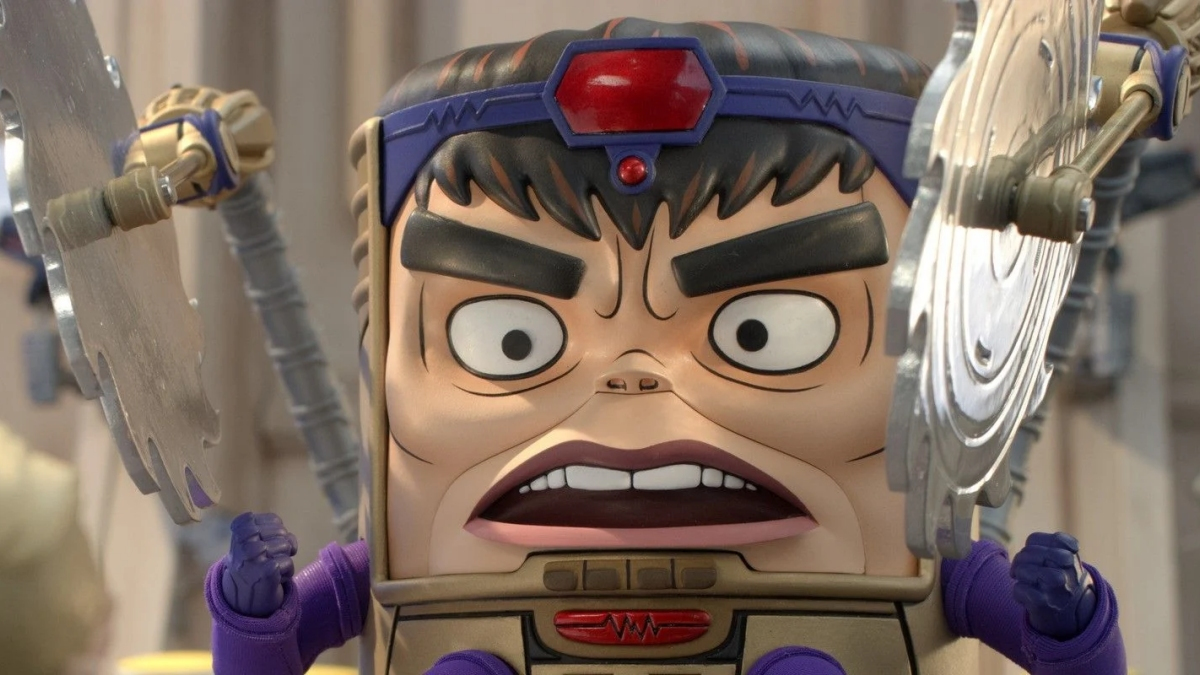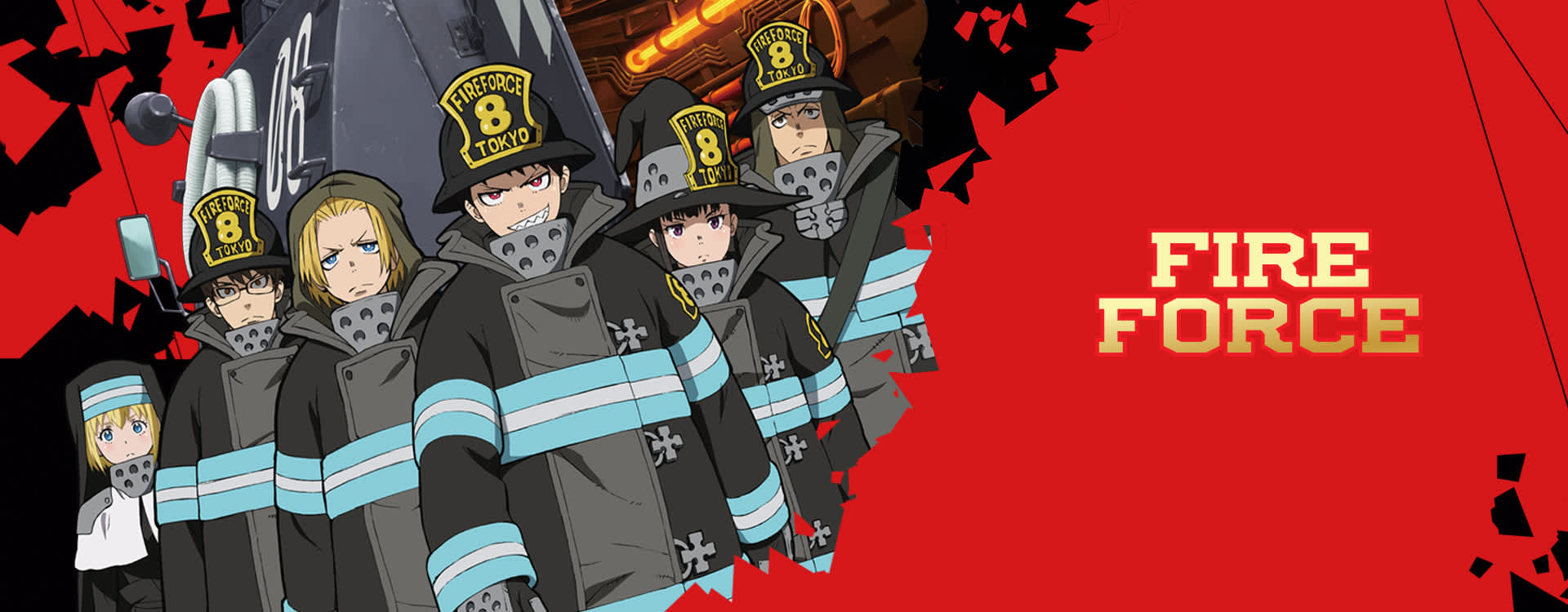Season Review: Marvel’s M.O.D.O.K. Season One
Overview:
Marvel’s M.O.D.O.K. centers around the cantankerous, yet ultra-brilliant, supervillain M.O.D.O.K. as he comes to grip with his own limitations as a major player in the Marvel universe. M.O.D.O.K.’s life loses its center when he gets ousted from his own company, A.I.M., which becomes an asset to his very rivals over at GRUMBL. Meanwhile, M.O.D.O.K.’s family life also crumbles to pieces and these familiar comforts fester into triggering frustrations. These repeated chinks in M.O.D.O.K.’s armor force him to progressively face the music and assess where he fits into this universe, if he even does at all.
Our Take:
Superheroes and villains are not going anywhere, especially when it comes to the medium of animation, and it’s a trend that’s easier to accept than to rebel against. Understandably, there are now so many shows that pull from the pages of Marvel and DC that it’s easy for fatigue to set in and for the kinetic visuals to wash over audiences and quickly leave their brains the minute that they’re over. Another growing trend is that it’s become easier to showcase the C-, D-, and E-tier comic book characters now that audiences have grown savvier to the genre in general. A series centered around M.O.D.O.K. would have been impossible ten years ago, but it’s now the perfect time to turn to this style of superhero adaptation that’s allowed to lovingly mock and embrace the customs and characters that have dominated the mainstream for the past decade.
One of the greatest assets of Marvel’s M.O.D.O.K. is that it’s the first contribution to the Marvel universe on this level that’s purely been interested in comedy. The Marvel Cinematic Universe has always been tongue-in-cheek, but M.O.D.O.K. really allows the titular character to obsess over the exaggerated minutiae of the MCU. Similarly, Marvel’s M.O.D.O.K. doesn’t present an origin story, but rather more of a tale of redemption and rebirth, which is a refreshing enough angle to kick off the series. A supervillain that’s caught in a midlife crisis has been done before, but the cocktail of brilliance, neuroses, and arrogance are what help M.O.D.O.K. stand out.
It’s no coincidence that M.O.D.O.K. begins with an honest attempt to humanize M.O.D.O.K. and cast him as a misunderstood genius rather than someone who’s purely caught up in delusions of grandeur. M.O.D.O.K. struggles with how he must juggle supervillainy and family life, yet the series mixes in workplace comedy elements to make M.O.D.O.K.’s story even more unusual. At times this feels very much like The Xtacles, which is high praise, but at its worst it can play a lot like an extended Robot Chicken sketch. Marvel’s M.O.D.O.K. is a funny show that will make both comic fans and comic virgins laugh, but it would hit even harder if the genre hadn’t already evolved in so many ways through shows like Harley Quinn or Doom Patrol.
A series that revolves around someone who is as strange as M.O.D.O.K. is bound to get into strange subject matter, but another highlight of Marvel’s M.O.D.O.K. is just how much his family means to him and the legitimate marital problems that he experiences. M.O.D.O.K. never quite reaches Moral Orel territory, but it’s surprising and appreciated that it still gets as raw as it does. There are multiple occasions where M.O.D.O.K.’s family are the keys to his success and it’s inspiring for him to gradually learn that loved ones can sometimes make the best sidekicks. It’s an important lesson for M.O.D.O.K. to process, especially if he hopes to move on with his life and not remain in his own shadow.
Patton Oswalt is exceptional casting for M.O.D.O.K. and he has no problem selling the character’s comedy, but it’s these emotional and vulnerable occasions where Oswalt’s work as M.O.D.O.K. truly shines. It’s easy to get lost in the absurd nature of this character, but Oswalt and this series guarantee that M.O.D.O.K.’s emotional journey resonates and isn’t played for laughs.
Marvel’s M.O.D.O.K. also effectively balances the character’s more human struggles with heightened genre storytelling. There’s a heavy focus on time travel throughout this season, which can inherently be cumbersome, but M.O.D.O.K. exploits this expectation and does wild things with the trope. Iconic Marvel locations like Murderworld and Broodworld appear, but in subversive ways and it’s the only series where a Third Eye Blind concert has the same weight as an Asgardian detour.
At the same time, deep cuts from out of the Marvel universe, like Master Pandemonium and the Ciegrimite species brilliantly shine a light on the extremely ridiculous nature of superheroes and villains, which often gets minimized in favor of the action and emotional stakes. M.O.D.O.K. proudly doesn’t sweep any strange Marvel dust bunnies under the carpet and instead has a whole party under there. All of this helps Marvel’s M.O.D.O.K. translate into an animated series that’s incredibly easy to binge and actually benefits from how its entire season is available at once.
The level of passion and creativity that goes into M.O.D.O.K.’s characterization and plotting is exceptional, but the look of the show is an equally important area to examine. Stoopid Buddy Stoodios, most famous for their work on Robot Chicken, is responsible for M.O.D.O.K.’s look. The team leans into what they know and there’s definitely a resemblance to Robot Chicken’s stop-motion aesthetic, but there’s an advanced level of polish here that functions as a testament to just how far Stoopid Buddy has grown within this medium. The slick look to the show results in some legitimately exciting action sequences and there’s frequently comical levels of violence or bonkers technology which heighten so many action scenes that are already a delight. Marvel’s M.O.D.O.K. also pushes a cinéma vérité look where a shaky handheld shooting style and impulsive rack focuses feed into the chaotic energy of this world. It’s unclear if this stop-motion aesthetic is the best look that M.O.D.O.K. could have turned to, but it’s also not a misfire either.
Marvel’s M.O.D.O.K. isn’t necessarily groundbreaking or original, but it’s still smart, hilarious, and pretty damn entertaining, which is more than enough. M.O.D.O.K. is one of the final vestiges of the old guard of Marvel’s television department, but it’s a welcome change of pace to finally have a Marvel television vehicle that’s primarily concerned with comedy and is able to skewer classic Marvel conventions with sharp satire. M.O.D.O.K. does feel like Marvel’s answer to DC’s Harley Quinn animated series in many ways, even if they were developed entirely independent of each other. In that sense, MODOK fulfills a side and tone of the Marvel universe that otherwise goes ignored and that alone makes it an important step forward. Ideally M.O.D.O.K. will be embraced and its example followed as Marvel’s continued foray into television only grows more intense, rather than gradually pushed into irrelevancy because it technically represents a part of Marvel’s past. Hopefully Kevin Feige can look past this because despite this technicality, M.O.D.O.K. very much represents Marvel’s future.
The entire first season of Marvel’s M.O.D.O.K. is available to stream on May 21st, on Hulu
























"There are also other characters that come and go (also owned by the Warner Bros. Discovery conglomerate media company)."
Huh. Is that just referring to other characters from the show itself, or is this implying that the new season is going to have cameos from other WBD IPs